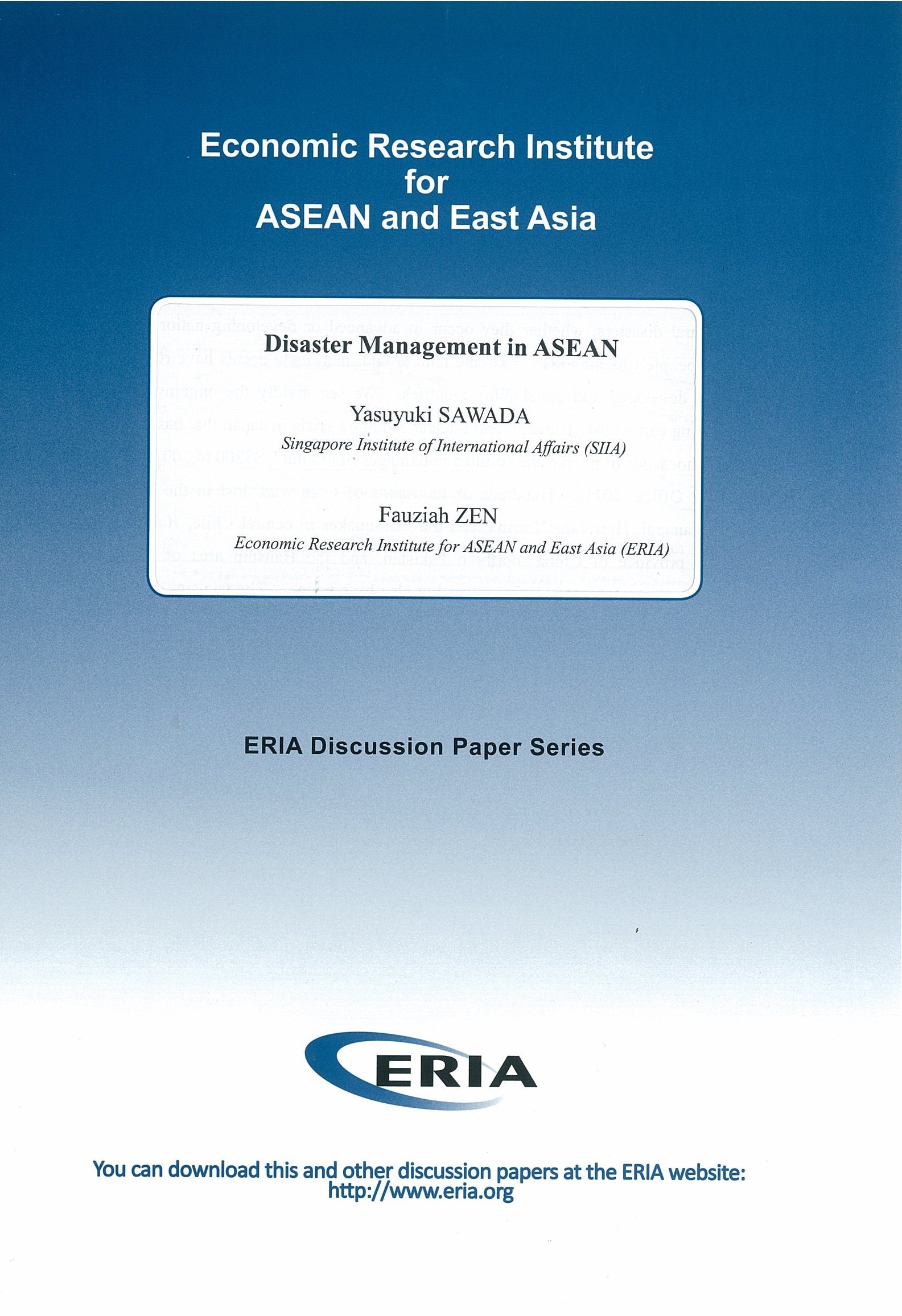Disaster Management in ASEAN

Print Article:
While the Asian countries have been successful in achieving economic growth and poverty reduction, the region cannot avoid exposure to a variety of disasters. Indeed, Asia, particularly the area of the ASEAN Member States (AMSs), is the most prone region to disasters in the world. The paper examines the experience of ASEAN and other countries and regions in the world on disaster management, and looks at the research literature, in order to provide insights, lessons and recommendations for the way forward for strengthened disaster management in AMSs and ASEAN beyond 2015. Particularly, we will summarize different approaches towards effective disaster risk coping strategy and regional cooperation on disaster management. By doing so, we aim at providing a clue to answer the question of how we should protect ourselves and the people of the region and the entire world from catastrophes.




